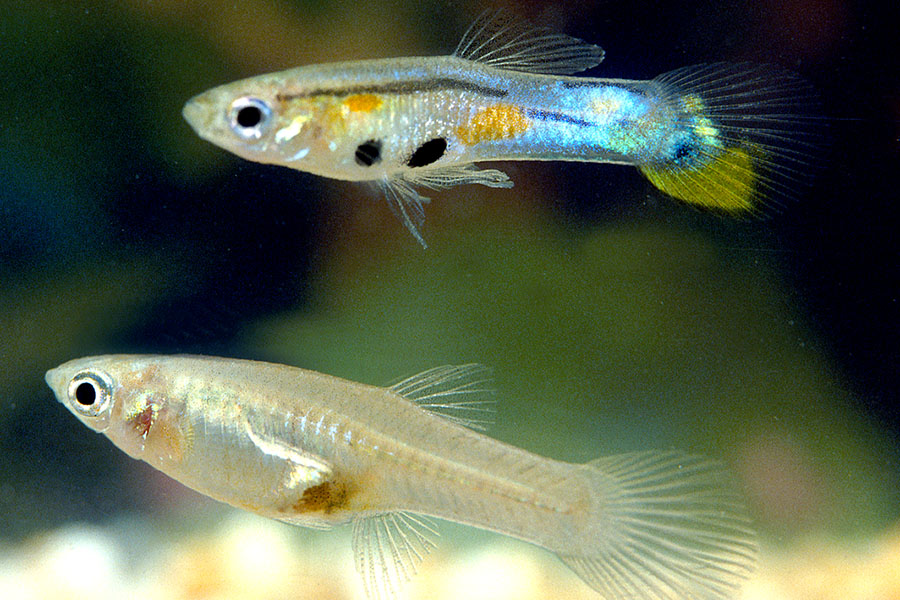
When it comes to finding a mate, male guppies rely on their brothers to ward off the competition.
In a new study published by a Florida State University team, researchers found that male Trinidadian guppies observe a form of nepotism when it comes to pursuing the opposite sex. These tiny tropical fish often help their brothers in the mating process by darting in front of other males to block access to a female.
The study is published in Nature Ecology & Evolution. Researchers said the findings were significant because it showed male guppies’ ability to recognize family members contributes to the mating process.
“The results strongly suggest that males use kin recognition to minimize sexual competition with their close relatives,” said Mitchel J. Daniel, a postdoctoral researcher at Florida State and the lead author on the study. “There is evidence of kin recognition in a wide range of animal species, including humans. Does kin recognition affect male-male competition in similar ways in other species? I’m hoping this study will help motivate other researchers to ask this question.”
In Daniel’s previous research, he found that female guppies used kin recognition when choosing their mates to avoid inbreeding. That made Daniel wonder whether males recognized kin when competing for mates. This idea had been previously tested by other researchers in fruit flies, but results were mixed.
“Those previous studies led to a lot of debate in the literature about whether relatedness among males really does relax sexual competition,” Daniel said. “Part of the motivation for our study was to help resolve this ongoing controversy by testing the idea in another species – guppies.”
Male guppies typically court females by performing a kind of dance around the female to express interest. If the female is interested, she will respond by moving toward the male. However, if another male injects himself between the couple, it prevents the couple from mating and gives the interrupting male a shot at wooing the female.
Daniel developed a mathematical model for predicting how often males should block one another to maximize their own Darwinian fitness – that is, how many copies of his own genes he passes on.
He also developed a second version of the model predicting what males should do to maximize their inclusive fitness, which considers their own fitness and the fitness of their male relatives. Since brothers share some of the same genes, a male can get more of his genes into the next generation by blocking his brothers less often, giving them more opportunities to mate.
To test these models, Daniel observed 600 guppies in groups of 12, watching their dances and the interruption behavior. The data closely matched the second model, which predicted that males should compete less with their brothers than other rivals.
“This was really exciting to see because it suggests that males are competing in a way that increases how often their genes get passed, even if those genes are getting passed on by their relatives,” he said. “It supports an evolutionary theory called kin selection, which can promote cooperation among relatives.”
Though he was specifically interested in the familial aspect of the interruption, Daniel observed that male guppies also exercised a form of retribution.
“When one male interrupted another male, it was usually reciprocated,” Daniel said. “More often than not, males went back and forth interrupting one another half a dozen times or so in quick succession before one male finally gave up. At times, it felt a bit like watching jealous lovers, each male desperate to keep ‘his’ female to himself.”
Robert J. Williamson from the Rose-Hulman Institute of Technology in Indiana co-authored the study.




